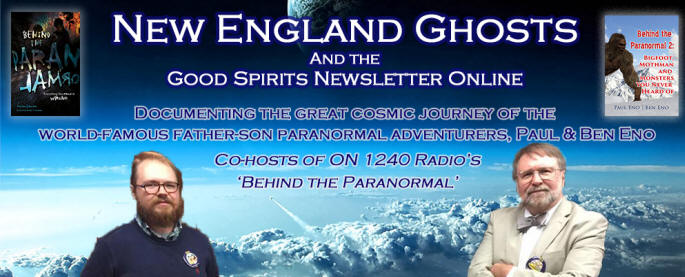Mental Illness and the Paranormal
When "there's somethin' strange in the neighborhood," there are many "hurdles" that have to be cleared before you even consider a paranormal explanation.
A big one is the question of mental or neural illness. But this issue raises complex and very uncomfortable questions about the nature of these illnesses, their possible interaction with the paranormal, and just who is "crazy" and who isn't.
On the surface of it, hearing voices and seeing things can be symptoms of schizophrenia, schizotypal personality disorder (SPD), or temporal lobe epilepsy (TLE). That's why one of the first questions I ask in an investigation is: "Who else is seeing or hearing this?"
Sure, there's such a thing as suggestibility and what we used to call "group hysteria," but if more than one person is experiencing phenomena, it does start to limit the possibilities.
I have always been a ferocious questioner, which is probably what led me into journalism. As a student of abnormal psychology decades ago, I would sometimes observe and work with schizophrenics and others with serious psychoses. Also a student of the paranormal, I began to ask questions nobody else seemed to be asking.
Do these illnesses or conditions create the chemically-induced illusions of other realities in the minds of these patients? Or do they open doors into actual other realities (a la quantum physics) usually closed to the rest of us, who are supposedly normal?
At Ogdensburg State Hospital in New York State or Norwich State Hospital in Connecticut, I would often catch such knowing looks in the eyes of these patients! On a few occasions, their conditions would be accompanied by apparent paranormal activity witnessed by hospital staff.
These questions were especially vexing to me when it came to those rare souls suffering from dissociative identity disorder (multiple personalities). Are such patients different people at different times because their brains are "fried," or are they simply aware of who they are in other places and times in the multiverse?
Among our ancient, "primitive" ancestors, these people were considered holy, not crazy. They were seen as more aware and in touch with the Gods than most. Today, they have serious trouble functioning in the artificial society we have created, even with their pockets full of "antipsychotic" pills.
Sure, many of these conditions express themselves destructively and must be restrained. But some "sufferers" have deep spiritual insight, experience life on far more profound levels than we do, and have much more to contribute than sweeping hallways or selling tickets at bus stations.
Psychology needs to look more deeply at these questions. Too much is at stake for all of us.
Copyright
2005 by Paul F. Eno. All rights reserved.


